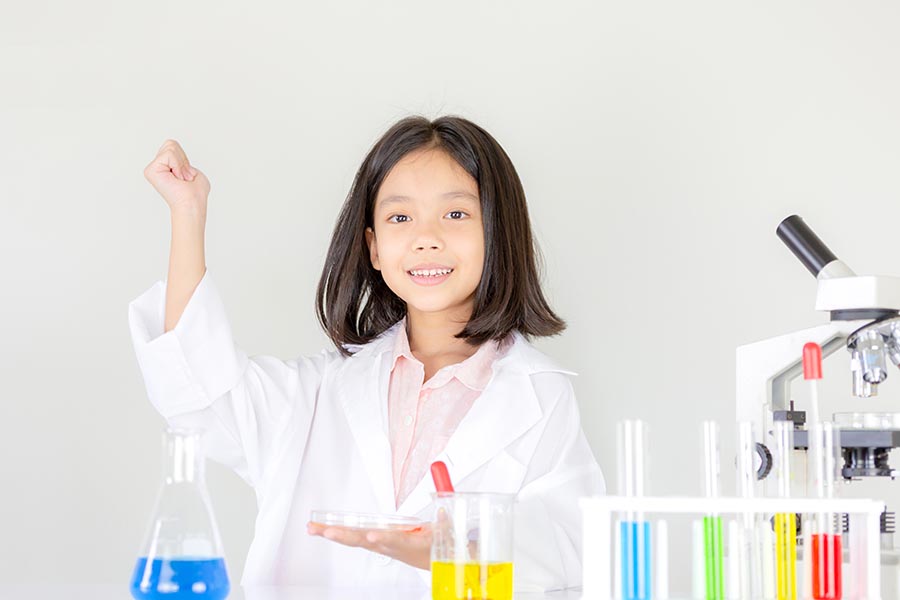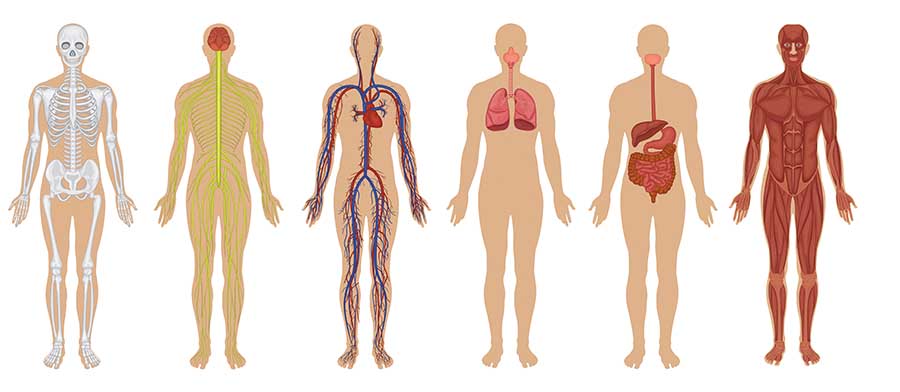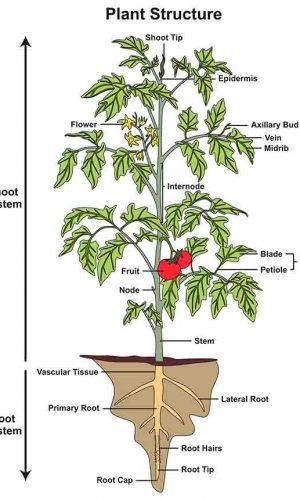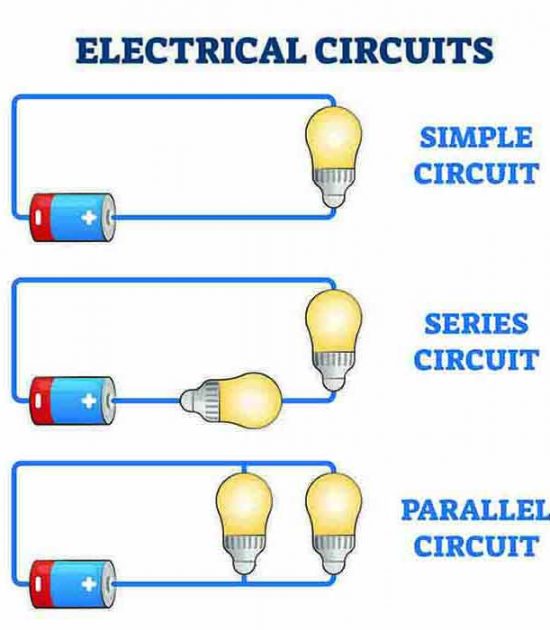17 May What Will Your Child Learn In Primary 5 & 6 Science?

In primary 5 and 6, your child would be covering 4 main science topics, namely systems, cycles, energy and interactions. As parents, being familiar with these topics will help you to best prepare your child for their exams while also sustaining their interest in science. As an introduction, we have written this article to give an overview of each topic and their sub-chapters.
Systems
3 types of systems are covered in primary 5 & 6 – humans, plants & electrical circuits.
Humans
Our bodies are composed out of several different systems, each being essential to our daily functions. Your child will be learning about the following systems:
- Circulatory system – how the blood is circulated around the body, delivering oxygen and nutrients to our organs while also taking away waste materials.
- Digestive system – how our body digests food, breaking down substances, absorbing nutrients and removing waste.
- Respiratory system – how the human body takes in oxygen from the air while removing carbon dioxide

Learning about these 3 systems gives your child a basic understanding of how our body obtains the energy needed to live and the processes involved.
Other systems that may be mentioned but are not covered are the endocrine, exocrine, immune, muscular, nervous, renal, reproductive and skeletal systems.
Plants

Like human bodies, plants also contain several systems that allow them to live. However, their systems are much different from ours and thus offer an interesting contrast. Within plants, your child will learn:
- Water absorption – how plants absorb water from their entire surface, including that of roots, stems and leaves. The majority of water is absorbed from its roots and pulled to other parts of the plants via capillary force in its tubes.
- Photosynthesis – how plants turn water, carbon dioxide and sunlight into oxygen and energy.
- Respiration – how plants still rely on respiration for energy when there is no sunlight
Your child will be required to compare and differentiate these two systems while also relating how we as humans are reliant on plants to produce sufficient oxygen for us.
Electrical

While learning about circuits, your child will be also required to recognise conductors of electricity as opposed to insulators. Furthermore, he or she should be able to investigate the effect of introducing new variables such as:
- Not having a closed circuit or flipping a switch off
- Having additional batteries in the circuit
- Arranging appliances in series as opposed to being parallel
Cycles
After learning about systems, your child will next turn his or her attention towards cycles, particularly that of water and its different forms.
Water & its 3 States

Water can exist in 3 interchangeable states of matter, namely solid, liquid and gas. In each state it is termed differently, solid being ice, liquid being water and gas being water vapour. Depending on the temperature, water would exist in a different state. Meanwhile, at its freezing or boiling points, water would undergo a change in state depending on whether heat is being gained or loss.
Comparing water’s 3 states will help your child to realise their different properties and the effect that temperature has on matter. This in turn helps to them to communicate their findings and forms a basis before they proceed to learn about the water cycle.
When learning about the water cycle, your child will learn about how water is constantly evaporating and form clouds before returning back to the earth via rain. The importance of the water cycle cannot be understated, and thus its twin processes of evaporation and condensation are emphasized in this topic. Having learnt about the water cycle, your child should have a keen appreciation of the importance of this cycle.
Energy
Students will need to learn about force, energy and how they impact our daily lives. This includes:
- A force used to move a stationary object
- A force used to speed up, slow down or change the direction of an object’s motion
- A force used to stop a moving object
- A force used to change the shape of an object
In this topic, your child will recognise the invisible forces that move objects or empower forces in the world.
Energy in its Different Forms
In addition to learning about the effect of forces being applied to an object, your child will also be taught about the different types of energy in the world and how they can convert into each other.
This includes:
- Magnetic force
- Gravitational force
- Elastic spring force
- Frictional force
Every object contains a certain amount of energy depending on their actions, position or the force that is being applied to them. Furthermore, energy is constantly changing its form. This can be illustrated in dropping a ball from height. In doing so, gravitational energy pulls the mass of the ball down while frictional air resistance pushes up against the ball. In doing so, frictional and gravitational force can be converted to heat.
Interactions
The last main topic that your student will cover in primary school science is interactions, specifically those that exist within a general environment. A primary learning objective here is for your child to comprehend the different factors that determine the survivability of organisms in an environment, organisms’ roles in maintaining an eco-system and their adaptability.
Among the main themes in this topic are that of food chains, the sun as a primary source of life, differences between habitats as well as human’s impact on environments. After learning about the different interactions, your child would have a good grasp of the fragility of an environment and how a slight change could fatally harm it in the long run.
Einstein’s Takeaway
Learning about these foundational science topics is critical to your child for both academic examinations as well as for furthering their understanding. Some students do find these topics difficult to grasp due to the inherent complexity that exist in them. In such cases, primary school tuition Singapore services can be engaged to help them clear doubts and comprehend a concept.
If your child is struggling with PSLE science syllabus, we suggest bringing them to Primary 6 science tuition classes. With more time and attention, your child will be able to explore concepts more thoroughly at their own pace. In turn, this could help them, to make sense of the different scientific concepts, and to readily apply them.



